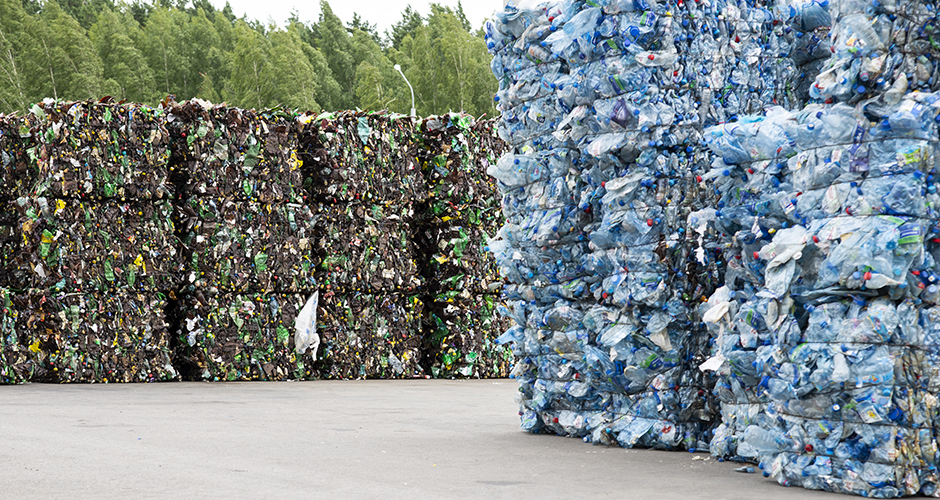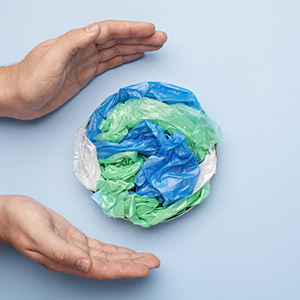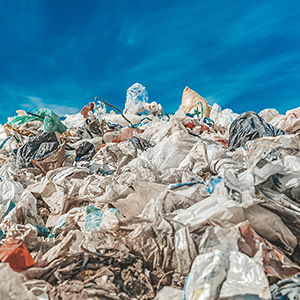
Recycling plastic waste is essential to building a sustainable future
Yes, plastic is essential for the global economy and modern living. We’ve become dependent on plastic and are guilty of being among the driving forces behind plastic pollution. If you wonder how big of a mess we’ve landed ourselves in and why recycling plastic waste to create alternatives to virgin plastic is necessary, here are some hard facts.
The History
According to experts and historians, while the genesis of plastic can be traced back to 1855, its usage started gaining popularity between the 1950s to 70s. Production and resultant plastic waste generation tripled by the 1990s, and by the early 2000s, the global generation of plastic waste had increased to unmanageable proportions. Factor these stats*
- The world buys one million plastic drinking bottles per minute
- The annual global consumption of single-use plastic bags is approximately 5 trillion
- The world has produced more than 8.3 billion tonnes of plastic since 1950
- Only 40% of this plastic has been reused/recycled
- Nearly 50% of plastic made globally is single-use
Plastic makes up a chunk of solid waste
Plastic waste makes up nearly 12% of the solid waste generated globally, and unfortunately, a large amount of this waste makes its way to landfill sites and water bodies rather than recycling units. This is mainly due to a lack of awareness and inadequate waste management and recycling systems. Moreover, despite companies claiming their products are recyclable, there are certain strains of plastic in these that cannot be recycled – like plastic bags, straws, majority coffee cups, and some electronic items too. All of which, obviously, add to the waste.
The non-biodegradable waste is defiling our water supply
The plastic we dump indiscriminately often finds its way to landfill sites and rivers that are conduits carrying trash from cities to water bodies. In fact, a whopping 8 million tonnes of plastic waste can be found in the world’s oceans and is eroding the marine environment. Remember those famous photographs of birds and marine animals found with plastic waste in their stomachs? It’s a harsh reality. Over a million marine animals, birds, flora, and fauna are killed by plastic pollution each year.
Plastic pollution affects your health
The qualities that make plastic durable are also why they take ages to break down. Over the years, these particles keep getting smaller and find their way into the soil and water bodies affecting flora and fauna. Animals and fish mistake these small particles for food and consume them, thus making our way to our dinner plates. Plastic is also known to leak contamination into food. As consumers, we are ingesting plastic pollutants through plastic straws, plastic cups or bottles, plastic food containers, and in some cities, through tap water.
Recycled plastic is a sustainable alternative to raw plastic
Many startups and recycling companies worldwide are promoting recycled plastic pellets as a sustainable and environment-friendly alternative to raw plastic. Recycled plastic can be used to make consumer-end products like cosmetic bottles, sports clothing, automation parts, interior products, and construction materials. Plastic waste has inspired creative thinking among artists who use the scrap to create installations and usable artwork to create awareness about the need to support plastic waste recycling.
A step to conserve the environment
According to a study by Stanford University**recycling one ton of plastic waste conserves 7,200-kilowatt hours of electricity which roughly means the amount of electricity used by a household for around 6-7 months. Moreover, redirecting plastic scrap from landfills to recycling units reduces the burden on land and takes us a step closer to a green future. Raw or virgin plastic manufacturing uses non-renewable fossil fuel hydrocarbons and petroleum. Recycling plastic, meanwhile, takes up about half the amount of energy required to manufacture raw plastic and is done in a sustainable manner which in turn means less disruption to the natural world.
* https://www.unep.org/interactive/beat-plastic-pollution/
** https://blog.impactplastics.co/blog/sustainability-in-the-workplace-5-major-benefits-of-plastic-recycling

